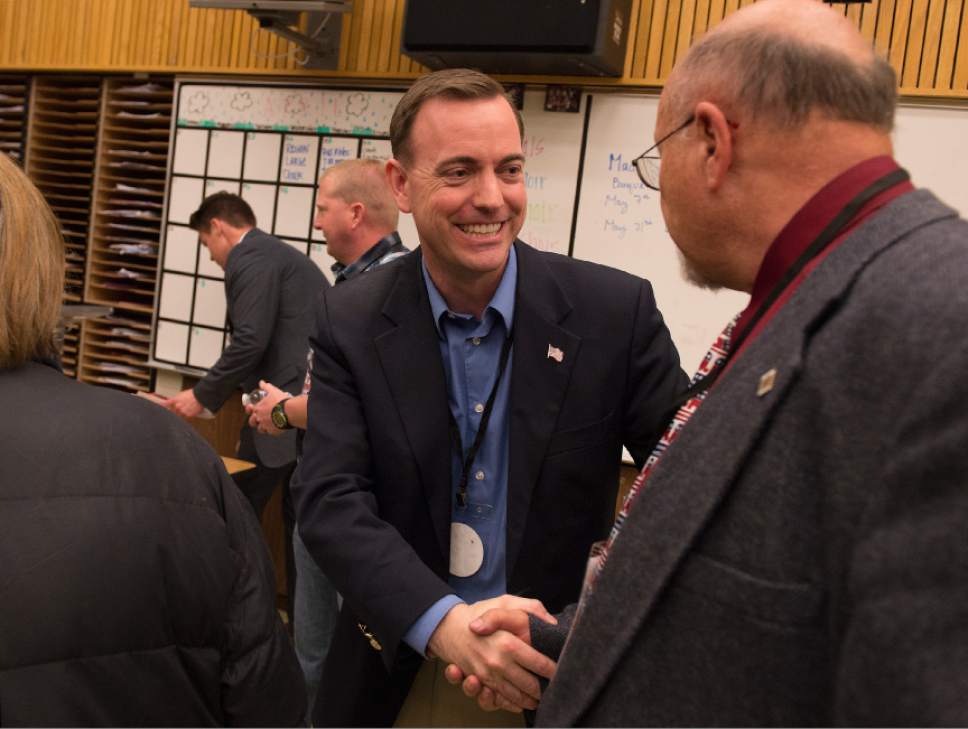This is an archived article that was published on sltrib.com in 2017, and information in the article may be outdated. It is provided only for personal research purposes and may not be reprinted.
A proposal to pay high-performing teachers extra to work in high-poverty schools is headed to the Senate after a warm committee reception on Thursday.
HB212 narrowly cleared the House Education Committee last month — ahead of a 51-23 vote in the House — but the Senate Education Committee gave the bill unanimous support, bolstering its odds of passage in the final days of the legislative session.
"This may not be everything but it's a little," said Sen. Howard Stephenson, R-Draper. "It has the potential for moving the needle significantly."
Under the bill, roughly 150 teachers would be eligible for an annual $5,000 bonus if they remain at or move to one of Utah's 100 most economically impacted schools.
Eligible teachers are identified through a metric called median growth percentile, or MGP, meaning their students show year-to-year improvement on standardized tests.
Bill sponsor Rep. Mike Winder, R-West Valley City, describes the proposal as a pilot program to address staffing shortages and turnover in Utah's public education system. Schools in affluent areas have comparably low levels of turnover, while low-income schools can shed half, or more, of their teachers every year.
"It's a huge disparity," Winder said. "And we, as a state, have a statutory duty to step in."
HB212 is supported by the Utah Board of Education, the Utah School Boards Association, the United Way of Salt Lake and the Sutherland Institute, a conservative think tank.
The bill would cost the state roughly $400,000, with participating districts required to cover half the cost of a teacher's bonus.
Sutherland spokesman Stan Rasmussen said the bill would encourage school administrators to rethink issues surrounding teacher pay and morale.
"We believe that good teachers deserve to be rewarded," he said.
But the Utah Education Association, the state's largest teachers union, opposes the bill. UEA government relations director Sara Jones said the program's reliance on test scores means that only math, English and science teachers in grades three through 11 are able to receive a bonus.
"Anything else, they're simply ineligible for the program," she said. "That's 70 percent of secondary teachers."
Granite School District Ben Horsley said his and other districts are "hemorrhaging" teachers. And while HB212 won't completely solve Utah's teacher shortage, he said, it targets a piece of that problem.
"I wish we could pay them all a bit more," he said. "But this is a pilot, it's intended to start and see if we can make progress."
Twitter: @bjaminwood



